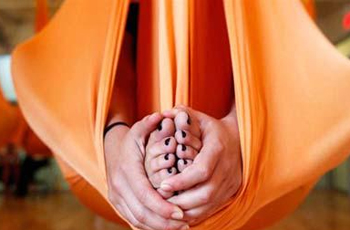 New research has found that yoga can help menopausal women sleep better.
New research has found that yoga can help menopausal women sleep better.
Researchers at Group Health Research Institute found that women who took a 12-week yoga class and practiced at home had lower risk of insomnia. However hot flashes persisted.
Yoga is quite popular in the U.S and is among the top ten complementary exercises practiced by Americans. About 6 percent of the U.S population reported that they practiced yoga in 2012, according to the National Center for Complementary and Alternative Medicine. Among the many types of yoga, the "hatha yog" is the most common yoga in the country.
Many factors affect a woman's sleep during menopause; there are hormonal changes, hot flashes, depression and sadness and even social factors, according to the National Sleep Foundation. Hot flashes are surges of adrenaline that awakens a person from sleep. It is accompanied by excessive sweating and a change of temperature, which can ruin sleep.
Previous research has shown that exercise and good diet can help women beat some symptoms of menopause and get a good night's sleep.
"Many women suffer from insomnia during menopause, and it's good to know that yoga may help them," said lead author Katherine Newton, PhD, a senior investigator at Group Health Research Institute.
The latest MsFLASH (Menopause Strategies: Finding Lasting Answers for Symptoms and Health) study found that yoga helped women cope with insomnia during menopause. The study didn't find any link between other methods such as inclusion of omega-3 fatty acids on sleep quality.
"Hormone therapy is the only Food and Drug Administration-approved treatment for hot flashes and night sweats," Dr. Newton said in a news release, "and fewer women are opting for hormone therapy these days." This is the reason that led researchers explore benefits of alternative therapies for insomnia during menopause.
The study was based on data obtained from 249 healthy women who were randomly assigned to yoga sessions or a moderate exercise program.
The study is published in the journal Menopause.






Comments
Add new comment